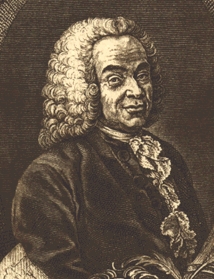
François Quesnay
1694-1774
The analysis of capital, within the bourgeois horizon, is essentially the work of the Physiocrats. It is this service that makes them the true fathers of modern political economy. ... The Physiocrats transferred the inquiry into the origin of surplus-value from the sphere of circulation into the sphere of direct production, and thereby laid the foundation for the analysis of capitalist production. - Marx, Theories of Surplus-Value
Biography
François Quesnay, born into a workers family, taught himself to read and became a country barber-surgeon. His writings on medical matters, his ambition and personal recommendation led to his appointment as the personal surgeon to King Louis XV's mistress, the Madame de Pompadour. At the Court in Versailles, Quesnay developed his economic theories and attracted a coterie of converts who became known as the Physiocrats. In 1758 he first developed his Tableau Economique - the Economical Table - which analysed the circulation of product and revenue in the economy. The Tableaux served as an inspiration for Marx's Reproduction Schema in Part III of Volume 2 of Capital.
References: Rubin's A History of Economic Thought, Part II is dedicated to a discussion of the Physiocrats. Ronald Meek has translated many Physiocratic writings. Those translations, together with analysis and commentary, have been published in The Economics of Physiocracy. Marx's own comments on Quesnay are scattered throughout Capital, in Part I of Theories of Surplus-Value and in Anti-Duhring.
Works:
Tableau Economique - 1759.
On Natural Rights - 1765.
The General Maxims - 1767.